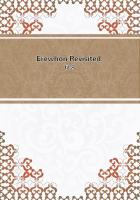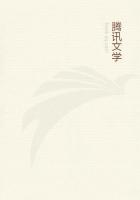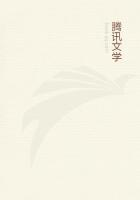But, weighing justly a mortal ant's condition, Divides his life 'twixt labour and fruition.
Thee neither heat, nor storms, nor wet, nor cold From thy unnatural diligence can withhold, To the Indies thou wouldst run rather than see Another, though a friend, richer than thee.
Fond man! what good or beauty can be found In heaps of treasure buried under ground?
Which, rather than diminished e'er to see, Thou wouldst thyself, too, buried with them be And what's the difference is't not quite as bad Never to use, as never to have had?
In thy vast barns millions of quarters store, Thy belly, for all that, will hold no more Than mine does. Every baker makes much bread, What then? He's with no more than others fed.
Do you within the bounds of Nature live, And to augment your own you need not strive;
One hundred acres will no less for you Your life's whole business than ten thousand do.
But pleasant 'tis to take from a great store;
What, man? though you're resolved to take no more Than I do from a small one; if your will Be but a pitcher or a pot to fill, To some great river for it must you go, When a clear spring just at your feet does flow?
Give me the spring which does to human use, Safe, easy, and untroubled stores produce;
He who scorns these, and needs will drink at Nile, Must run the danger of the crocodile;
And of the rapid stream itself which may, At unawares bear him perhaps away.
In a full flood Tantalus stands, his skin Washed o'er in vain, for ever dry within;
He catches at the stream with greedy lips, From his touched mouth the wanton torment slips.
You laugh now, and expand your careful brow:
'Tis finely said, but what's all this to you?
Change but the name, this fable is thy story, Thou in a flood of useless wealth dost glory, Which thou canst only touch, but never taste;
The abundance still, and still the want does last.
The treasures of the gods thou wouldst not spare, But when they're made thine own, they sacred are, And must be kept with reverence; as if thou No other use of precious gold didst know But that of curious pictures to delight With the fair stamp thy virtuoso sight.
The only true and genuine use is this, To buy the things which nature cannot miss Without discomfort, oil, and vital bread.
And wine by which the life of life is fed, And all those few things else by which we live All that remains is given for thee to give.
If cares and troubles, envy, grief, and fear, The bitter fruits be which fair riches bear, If a new poverty grow out of store, The old plain way, ye gods! let me be poor.
A PARAPHRASE ON AN ODE IN HORACE'S THIRD BOOK, BEGINNING THUS:-"Inclusam Danaen turris ahenea."
A tower of brass, one would have said, And locks, and bolts, and iron bars, And guards as strict as in the heat of wars Might have preserved one innocent maidenhood.
The jealous father thought he well might spare All further jealous care;
And as he walked, to himself alone he smiled To think how Venus' arts he had beguiled;
And when he slept his rest was deep, But Venus laughed to see and hear him sleep.
She taught the amorous Jove A magical receipt in love, Which armed him stronger and which helped him more Than all his thunder did and his almightyship before.
II.
She taught him love's elixir, by which art His godhead into gold he did convert;
No guards did then his passage stay, He passed with ease, gold was the word;
Subtle as lightning, bright, and quick, and fierce, Gold through doors and walls did pierce;
And as that works sometimes upon the sword, Melted the maiden dread away, Even in the secret scabbard where it lay.
The prudent Macedonian king, To blow up towns, a golden mine did spring;
He broke through gates with this petar, 'Tis the great art of peace, the engine 'tis of war, And fleets and armies follow it afar;
The ensign 'tis at land, and 'tis the seaman's scar.
III.
Let all the world slave to this tyrant be, Creature to this disguised deity, Yet it shall never conquer me.
A guard of virtues will not let it pass, And wisdom is a tower of stronger brass.
The muses' laurel, round my temples spread, Does from this lightning's force secure my head, Nor will I lift it up so high, As in the violent meteor's way to lie.
Wealth for its power do we honour and adore?
The things we hate, ill fate, and death, have more.
IV.
From towns and courts, camps of the rich and great, The vast Xerxean army, I retreat, And to the small Laconic forces fly Which hold the straits of poverty.
Cellars and granaries in vain we fill With all the bounteous summer's store:
If the mind thirst and hunger still, The poor rich man's emphatically poor.
Slaves to the things we too much prize, We masters grow of all that we despise.
V.
A field of corn, a fountain, and a wood, Is all the wealth by nature understood.
The monarch on whom fertile Nile bestows All which that grateful earth can bear, Deceives himself, if he suppose That more than this falls to his share.
Whatever an estate does beyond this afford, Is not a rent paid to the Lord;
But is a tax illegal and unjust, Exacted from it by the tyrant lust.
Much will always wanting be, To him who much desires. Thrice happy he To whom the wise indulgency of Heaven, With sparing hand but just enough has given.















